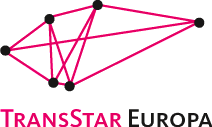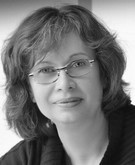 Dr. Alida Bremer
Dr. Alida Bremer
Foto © Oliver Favre
She was born in 1959 in Split, Croatia, and completed her degree in Comparative Literature Studies, Romance, Slavic and German Studies in Belgrade, Rome, Saarbrücken and Münster. Her PhD she completed in the area of comparative literature studies. For many years she worked as a research assistant and lector at the universities of Münster and Giessen. She was the artistic program director of the book fair in Pula, Istria, the acting manager of the project “Croatia as Focus Country at the Leipzig Book Fair in 2008”, is a freelancer at the S. Fischer Foundation and was awarded a Border Crosser research grant by the Robert Bosch Foundation in the year 2008-2009.
Important publications: Kriminalistische Dekonstruktion: Zur Poetik der postmodernen Kriminalromane [Criminalistic Deconstruction: The Poetics of Postmodern Detektive Stories] (Würzburg 1999); (ed.): Jugoslawische (Sch)Erben: Probleme und Perspektiven [Yugoslavian Heirs: Problems and Perspectives] (Osnabrück 1993); (ed.): Literarischer Reiseführer: Istrien [Literary Travel Guide: Istria] (Klagenfurt/Celovec 2008); (edited together with Silvija Hinzmann and Dagmar Schruf): Südliche Licht. 20 Liebeserklärungen an Kroatien [Southern Light: 20 Declarations of Love for Croatia] (Berlin 2008); (edited together with Hermann Wallmann): Kroatische Literatur der Gegenwart in 6 Bänden [Croatian Literature oft he Present in Six Volumes] (Daedalus Verlag 2008); (edited together with KulturKontakt Austria): Zeitgenössische Literatur aus Kroatien [Contemporary Literature from Croatia] (realized: four volumes, planned: ten volumes); (ed.): Fabula rasa. Oder: Zagreb liegt am Meer / Die kroatische Literatur der letzten 25 Jahre [Fabula Rasa: Zagreb is Located at the Sea / Croatian Literature of the Last 25 Years] Die Horen, Volume 229 (1st Quarter, 2008).
Numerous translations from Croatian, Serbian and Bosnian (poetry, novels, short stories, plays, essays amongst others from Predrag Matvejević, Bora Ćosić, Ivana Sajko, Edo Popović, Miroslav Krleža, Milko Valent, Janko Polić Kamov, Antun Šoljan, Veljko Barbieri, Roman Simić, Delimir Rešicki, Slavenka Drakulić, Jakša Fiamengo, Dragan Velikić, Marija Karaklajić, Milena Marković).
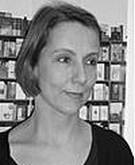
Antje Contius
Since 2008 Antje Contius (born 1966) is the director of the S. Fischer Foundation. As a freelance editor she worked for publishing houses in Austria, Germany and Switzerland with a focus on East European literatures. As consultant in the department responsible for East Europe and the Near East at the foreign office of the Leipzig trade fair, she also pursued this regional focus. Between 1995 and 1998 she was the director of this department. In 2002 she joined the S. Fischer Foundation.
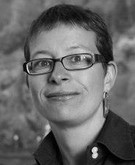 Claudia Dathe completed her studies in Business Administration and Translation Studies (Russian, Polish) in Leipzig, Pjatigorsk (Russia) and Krakow. From 1997 to 2004 she was a lector for the German Academic Exchange Service (DAAD) in Kazakhstan and Ukraine. After returning to Germany, she worked as a freelance translator for the Ukrainian, Russian and Polish languages and conducted tutorials for German and Ukrainian up-and-coming translators. Since 2009 she works at the University of Tübingen within the framework of the “Textabdrücke – Literary Translation” project and currently as the coordinator of the EU-funded project “TransStar”. Her professional and research interests focus on the linkages and asymmetries of East and Central European literary spaces. Claudia Dathe translated into German – amongst others – the following Ukrainian authors: Serhij Zhadan, Olexandr Irwanez, Tanja Maljartschuk and Maria Matios.
Claudia Dathe completed her studies in Business Administration and Translation Studies (Russian, Polish) in Leipzig, Pjatigorsk (Russia) and Krakow. From 1997 to 2004 she was a lector for the German Academic Exchange Service (DAAD) in Kazakhstan and Ukraine. After returning to Germany, she worked as a freelance translator for the Ukrainian, Russian and Polish languages and conducted tutorials for German and Ukrainian up-and-coming translators. Since 2009 she works at the University of Tübingen within the framework of the “Textabdrücke – Literary Translation” project and currently as the coordinator of the EU-funded project “TransStar”. Her professional and research interests focus on the linkages and asymmetries of East and Central European literary spaces. Claudia Dathe translated into German – amongst others – the following Ukrainian authors: Serhij Zhadan, Olexandr Irwanez, Tanja Maljartschuk and Maria Matios.
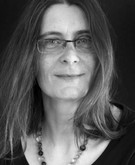 Kristina Kallert
Kristina Kallert
Foto © 2013. All rights reserved worldwide for FDDO.
Born in 1962 in Weissenburg, after she studied Eastern Slavic Studies and German Studies in Regensburg and St. Petersburg she went to the Masaryk University in Brno as a DAAD lector. There she successfully completed her state examination in 1998 in the field of Czech language and literature.
At the beginning of her translation activities are her translation of Ivan Cankar’s Nina (1906/1999) a translation from Slovenian and already from Czech Bartoloměj Daniel’s Geschichte der Roma in Böhmen, Mähren und der Slowakei [The History of Roma in Bohemia, Moravia and Slovakia] (1994/1998), the life work of the first Roma author of the Czech Republic. Kristina Kallert concentrates on works of fiction but increasingly devotes herself to translating humanities publications – in both areas older as well as contemporary authors are represented. The latest published translations are J.M. Langer: Die neun Tore [The Nine Goals] (1937/2012), M. Ryšavý: Dimitrij der Heiler [Dmitry, the Healer] (2010/2012), K. Čapková, M.Frankl: Unsichere Zuflucht. Die Tschechoslowakei und ihre Flüchtlinge aus NS-Deutschland und Österreich 1933-1938 [Uncertain Asylum: The Czech Republic and its Refugees from Nazi Germany and Austria from 1939 to 1938] (2010/2012).
Kristina Kallert has collaborated on the Czech library (B. Němcová, J. Zeyer, J. Karásek ze Lvovic, J. Jungmann, V. Kramář), she translates for the Dresden Poetry Prize and will contribute to the Vladimir Holan edition provided by U. Heftrich.
In Leipzig, Tübingen and Znojmo she has lead translator workshops numerous times. In 2004 she received the Leipzig Fähre Prize for literary translation, she was an awardee of a stipend at the Literary Colloquium in Berlin (2004) and the Institute for Human Sciences (IWM) in Vienna (Paul Celan Fellowship, 2007); in winter of 2010 she was a translator in residence in Tübingen. She is a part-time lector for Czech at the Institute for Slavic Studies of the University of Regensburg since 2005.
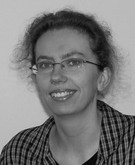 Dr. Elżbieta Kapral studied German Studies at the universities of Łódź and Giessen. Since 2003 she is employed at the Department of Literature and Cultures of Germany, Austria and Switzerland at the University of Łódź, where she successfully defended her PhD thesis on the topic: “Jurek Becker: A Monography” in 2010. She also held seminars on Polish literature and language at the Martin Luther University in Halle (Saale).
Dr. Elżbieta Kapral studied German Studies at the universities of Łódź and Giessen. Since 2003 she is employed at the Department of Literature and Cultures of Germany, Austria and Switzerland at the University of Łódź, where she successfully defended her PhD thesis on the topic: “Jurek Becker: A Monography” in 2010. She also held seminars on Polish literature and language at the Martin Luther University in Halle (Saale).
The multifaceted literature of former East Germany (GDR) is one of her primary research interests. In addition, she works on topics such as: coming to terms with the past in German literature after 1945; Polish and German post-reunification literature. She is very active in a number of international (translation) projects whose aim is to popularize German and Polish literature in the respective neighboring country. She also works as an interpreter and translator from the German and Italian languages.
Since 2013 she is the coordinator of the international EU-funded project TransStar at the University of Łódź.
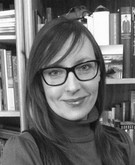 Daniela Kocmut was born in Maribor in 1980. In 1991 she moved to Austria and grew up in Hermagor, Carinthia; she lives in Graz, works as a translator and interpreter, and teaches Slovene. She is currently an assistant at the literary journal LICHTUNGEN and teaches Slovene in the program treffpunkt sprachen at the University of Graz. She studied Translation Studies in Graz and Dublin. Since 2004 Daniela Kocmut has translated primarily literary and technical texts from various fields and languages (German, Slovene, English and Croatian). She has published numerous literary translations into German: Luzias Augen and Der Baum ohne Namen by Drago Jančar, Die verborgene Harmonie by Katarina Marinčič, Alle meine Kriege, Plötzlich wurde es dunkel by Maruša Krese, and Wasserlinge by Veno Taufer She regularly participates in literary events, especially in Graz and Maribor, and writes poetry in German and Slovene.
Daniela Kocmut was born in Maribor in 1980. In 1991 she moved to Austria and grew up in Hermagor, Carinthia; she lives in Graz, works as a translator and interpreter, and teaches Slovene. She is currently an assistant at the literary journal LICHTUNGEN and teaches Slovene in the program treffpunkt sprachen at the University of Graz. She studied Translation Studies in Graz and Dublin. Since 2004 Daniela Kocmut has translated primarily literary and technical texts from various fields and languages (German, Slovene, English and Croatian). She has published numerous literary translations into German: Luzias Augen and Der Baum ohne Namen by Drago Jančar, Die verborgene Harmonie by Katarina Marinčič, Alle meine Kriege, Plötzlich wurde es dunkel by Maruša Krese, and Wasserlinge by Veno Taufer She regularly participates in literary events, especially in Graz and Maribor, and writes poetry in German and Slovene.
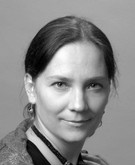 Amalija Maček
Amalija Maček
From 1995 to 2001, after graduating in German Language and Literary Studies and Hispanic Studies, she worked as a freelance translator and interpreter. As a student and an alumna, she pursued further education (through various scholarships: DAAD, Schritte, Sommerakademie LCB, etc.) in Germany, Austria and in Spain. Since 2001 she has worked at the Department of Translation at the University of Ljubljana’s Faculty of Humanities, where she mainly teaches translation from German into Slovene. She has published numerous scholarly and newspaper articles and reviews. Since 2008 she heads the master’s program in Interpreting Studies (a member of EMCI). She coordinated the EULITA and TRAFUT projects for Slovenia and is also an accredited conference interpreter, works for EU institutions, is a member of the Slovene Book Agency’s committee for the promotion of Slovene literature abroad and, first and foremost, is a literary translator from German into Slovene (Mora, Brecht, Kafka, Winkler, Pollack, Peltzer, Muschg, Kehlmann, Aichinger, etc.).
 Iwona Nowacka studied German Studies and Literature at the Adam Mickiewicz University in Poznań and Universita degli Studi di Macerata in Italy and works as a translator, coordinator and curator of theater and literature projects. She has translated plays by Werner Fritsch, Juli Zeh, Gesine Danckwart, Jan Fabre, Stephan Seidel, Carsten Brandau, Lothar Kittstein and Martin Heckmanns into Polish as well as prose by Annette Mingels, Richard Obermayr and others. She has also worked with stage directors such as Paweł Łysak, Piotr Kruszczyński, Marcin Liber, Grażyna Kania and Natalia Sołtysik. Until the present she has worked for the National Theater Mannheim, the Hauptmann Theater in Zittau, Landesbühne (regional theater) Nord in Wilhelmshaven, the Volkstheater (people’s theater) Vienna, Teatr Dramatyczny in Warsaw and the Teatr Dramatyczny in Wałbrzych. In addition she translates for the journals Theater der Zeit, nachtkritik and the Polish theater portal e-teatr.pl as well as for the Ukrainian-German literary journal radar. She works as a language coach for film, TV and theater. She was recipient of a fellowship at the International Schiller Festival in Mannheim, in the Villa Decius in Krakau, the Foundation for German-Polish Cooperation, at the Baltic Centre of Writers and Translators in Visby and the Polish Ministry of Culture.
Iwona Nowacka studied German Studies and Literature at the Adam Mickiewicz University in Poznań and Universita degli Studi di Macerata in Italy and works as a translator, coordinator and curator of theater and literature projects. She has translated plays by Werner Fritsch, Juli Zeh, Gesine Danckwart, Jan Fabre, Stephan Seidel, Carsten Brandau, Lothar Kittstein and Martin Heckmanns into Polish as well as prose by Annette Mingels, Richard Obermayr and others. She has also worked with stage directors such as Paweł Łysak, Piotr Kruszczyński, Marcin Liber, Grażyna Kania and Natalia Sołtysik. Until the present she has worked for the National Theater Mannheim, the Hauptmann Theater in Zittau, Landesbühne (regional theater) Nord in Wilhelmshaven, the Volkstheater (people’s theater) Vienna, Teatr Dramatyczny in Warsaw and the Teatr Dramatyczny in Wałbrzych. In addition she translates for the journals Theater der Zeit, nachtkritik and the Polish theater portal e-teatr.pl as well as for the Ukrainian-German literary journal radar. She works as a language coach for film, TV and theater. She was recipient of a fellowship at the International Schiller Festival in Mannheim, in the Villa Decius in Krakau, the Foundation for German-Polish Cooperation, at the Baltic Centre of Writers and Translators in Visby and the Polish Ministry of Culture.
 Małgorzata Różańska
Małgorzata Różańska
She completed her studies of Germanic Philology at the Jagiellonen University in Krakow and studied Applied Linguistics (English, Spanish) at the Józef Tischner European University in Krakow. From 2005 until 2008 she was active as an internal reviewer at ZNAK publishers and since 2008 she is a free coordinator of the scholarship programs of the Villa Decius Association in Krakow (artist scholarships, DAGNY, Visegrad Literary Residency Program, scholarships for persecuted authors ICORN). She is co-editor of the anthology Podróż na północ [Northbound Journey] (2011) with texts of Polish and Norwegian recipients of a residency scholarship at Villa Decius. Since 2010 she is the secretary of the editorial staff of the international literary journal called RADAR. She is a freelance translator from German and English and a participant in the “TransStar” project.
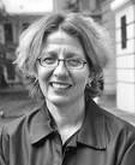 Prof. Dr. Schamma Schahadat
Prof. Dr. Schamma Schahadat
Schamma Schahadat studied Russian and English at the universities of Cologne, Exeter and Moscow; she obtained her Ph.D. and finished her habilitation at the University of Konstanz. Since 2004 she has been a professor for Russian and Polish (specifically modern and contemporary) literatures at the University of Tübingen with an interest in translation studies, cultural theory and semiotics, literary theory, literature and philosophy, gender studies, the interrelation of space and power (e.g. intimacy) and cinema and film theory.
She is the project coordinator of “Textabdrücke” and “TransStar”.
Selected publications are: with Claudia Dathe and Renata Makarska: Zwischentexte. Literarisches Übersetzen in Theorie und Praxis [Intermediary Texts: Literary Translation in Theory and Practice] Berlin 2013; with Konrad Klejsa and Margarete Wach: Der polnische Film von den Anfängen bis zur Gegenwart [Polish Film From its Inception to the Present] Marburg 2012; with Catrin Misselhorn and Irina Wutsdorff, Erkenntnis und Darstellung. Formen der Philosophie und der Literatur [Cognition and Presentation: Forms of Philosophy and of Literature] Paderborn 2011; with Dorothee Kimmich, Kulturen der Leidenschaften – Leidenschaften in den Kulturen [Cultures of Passion – Passion in Cultures] Special edition arcadia, vol. 44 (2009).
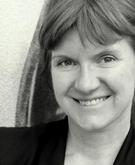 Renata Serednicka
Renata Serednicka
She completed German Studies at the Jagiellonen University in Krakow and studied Contemporary German Literature at the New University at Augsburg. From 1997 until the present she has worked as a freelance project coordinator with the Villa Decius Association in Krakow. Amongst her most important projects are fellowships for writers and literary translators „Homines Urbani“ and „Dagny“, the co-editorship of two anthologies Ludzie, miasta [People, Cities; 2008] and Podróż na północ [The Trip North; 2011] with texts of the Polish, German-speaking, Ukrainian, Belarusian and Norwegian residency fellows of the Villa Decius as well as the coordination and editing of the tri-lingual literary journal RADAR for the latest literature stemming from Poland, the German-speaking countries and Ukraine. She is a member of the TransStar consortium.
 Norbert Wehr (geb. 1956)
Norbert Wehr (geb. 1956)
Foto © Photo Eikelpoth
Norbert Wehr (born 1956) studied General and Comparative Literature at the University of Essen and works as a journalist, literary critic and writer for the radio. Since 1982 he published the literary journal Schreibheft which under his direction turned into one of the most important literary journals in Germany. He is a member of a number of important literary juries and has been awarded numerous prizes for his engagement in promoting sophisticated literature, i.a. the Literaturtaler prize of North Rhine-Westphalia in 1998 and in 2001 the Kurt Wolf Advancement Scholarship. Norbert Wehr lives in Essen and Cologne.
Relying on the structure and methodology of classical and postclassical [...]
For further information on translation, the TransStar project and the [...]
Relying on the structure and methodology of classical and postclassical [...]
Sir or Madam, In co-operation with KulturKontakt Austria, the Austrian [...]
Five short films with translations (videopoetry) were made as part [...]
Translating Cube: Six Sides of European Literature and Translation Berlin, [...]
Programme (PDF)
Five short films with translations (videopoetry) were made as part [...]
Translating Cube: Six Sides of European Literature and Translation Berlin, [...]
Programme (PDF)
Translating Cube in Tübingen Reinold Hermanns: SWR2 Journal am Mittag, [...]
Being Exchanged: Between Paris, Stuttgart and Ivano-Frankivsk Yuri Andrukhovytsh, Lubomír [...]
Five short films with translations (videopoetry) were made as part [...]
Bookstore: http://www.edition-fototapeta.eu/geschichten-erzaehlen
More here (PDF). Bookstore: https://knjigarna.ff.uni-lj.si/si/izdelek/1623/pet-poti-do-prevoda/
Five short films with translations (videopoetry) were made as part [...]
Bookstore: http://www.edition-fototapeta.eu/geschichten-erzaehlen
More here (PDF). Bookstore: https://knjigarna.ff.uni-lj.si/si/izdelek/1623/pet-poti-do-prevoda/
Translating Cube: Six Sides of European Literature and Translation Berlin, [...]
Programme (PDF)

